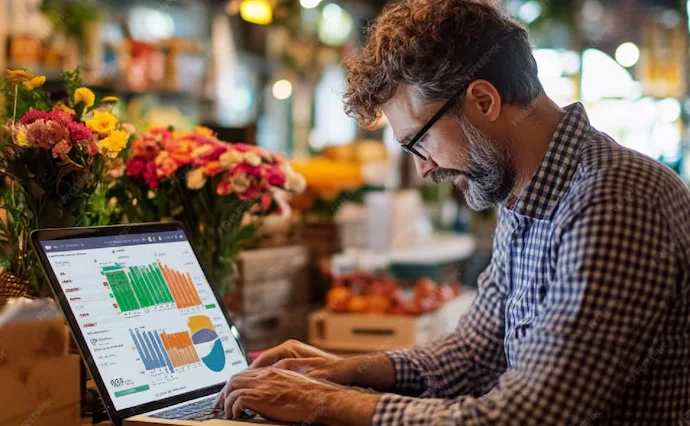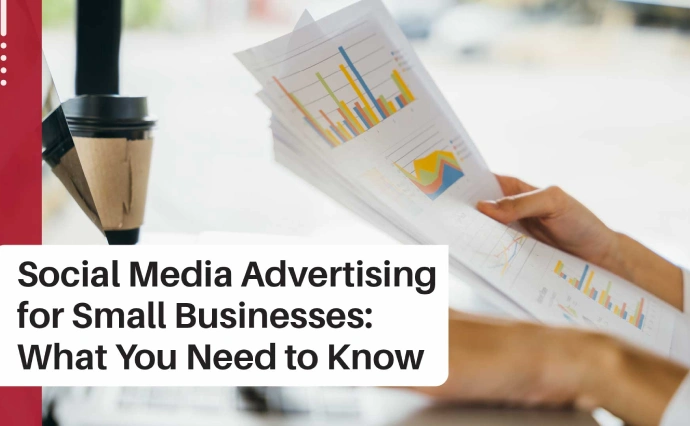What is Local Business Marketing?
Local business marketing means promoting a business in a specific area or community. It’s about reaching people who live nearby and encouraging them to choose your business over others in the area. Small business marketing is especially important for small businesses like shops, restaurants, or services that rely on local customers to succeed.
In today’s digital world, Small business marketing uses both online and offline methods. It could involve advertising in community newspapers, but it also means using online tools like Google, Facebook, or Instagram to let people nearby know about your business. This strategy helps build strong connections within the community.
Why Local Business Marketing is Important
Community outreach important because it brings more customers from the community. When you focus on local marketing, you’re not trying to reach everyone in the world. Instead, you’re reaching people who are likely to visit your shop or use your service. This saves time and money. Here are some reasons why it’s important:
Builds a Strong Local Presence: When you focus on your local community, people get to know your business name, what you offer, and why you’re special. A strong local presence can lead to more word-of-mouth recommendations, which are very valuable for small businesses.
Increases Customer Loyalty: Local marketing can create strong connections with customers. They may feel more connected to a business that serves their community, especially if they see you supporting local causes or events.
More Affordable than Big Advertising: Local marketing can often be done with a smaller budget than advertising to a broad audience. For example, using social media ads targeted to people within a few miles of your location is cheaper and more effective.
Challenges in Local Business Marketing
While Online business marketing can be very effective, it does come with a few challenges:
Budget Constraints: Small businesses often have limited budgets, so they have to be smart about where to spend their money. They may need to find low-cost or free ways to reach customers, like using social media or getting listed on Google Maps.
Targeting the Right Audience: It’s not always easy to reach the right people. If your ads go to people who aren’t in your area, they won’t be useful. Using the right keywords and local tags helps, but it requires careful planning.
Competition with Other Local Businesses: Many businesses are targeting the same local customers. It’s important to stand out by offering something unique or providing better customer service.

Key Trends in Online Business Marketing
Small business marketing is always changing, especially with new technology. Here are some key trends in Online business marketing that help businesses stay competitive:
Hyperlocal Targeting: Hyperlocal targeting is a new way to reach customers in very small areas, like certain neighborhoods. This works well for businesses with a very specific local focus. With hyperlocal targeting, ads only show up to people close by.
Mobile Optimization: People often search for businesses on their phones. Local businesses should make sure their website and social media pages work well on mobile devices. This makes it easy for people to find information quickly, like your address, phone number, or hours of operation.
Data-Driven Decisions: Using data helps businesses see what works best. Data shows which ads are getting the most attention and what customers are interested in. Businesses can then adjust their marketing strategies based on these insights to reach more people locally.
Small business marketing is essential for success today. By understanding the basics, overcoming challenges, and following the latest trends, small businesses can thrive in their local communities.
Building a Local Brand Identity in Local Business Marketing
What is a Local Brand Identity?
A local brand identity is how people see and recognize your business in your community. In local business marketing, having a strong brand identity helps you stand out. Your brand is not just your logo or name; it’s the feeling people get when they think about your business. It includes your business’s values, personality, and how you interact with your customers. When people remember your brand, they’re more likely to choose your business.
Defining Your Unique Value Proposition (UVP) in Online Business Marketing
A Unique Value Proposition (UVP) is what makes your business different from others. It’s a special quality that shows customers why they should pick your business over others. In local business marketing, your UVP should focus on what people in your community care about. For example, if you’re a restaurant, your UVP could be that you use fresh, local ingredients. If you’re a bookstore, it could be that you only sell books by local authors.
To create a strong UVP, think about these questions:
What do I offer that other businesses do not?
Why do my customers keep coming back?
How can I make my community proud?
Creating a Consistent Brand Message for Local Business Marketing
Consistency is key in local business marketing. Your brand message should always be the same, whether people see you on social media, visit your website, or come into your store. A consistent message builds trust because customers know what to expect. If your business is friendly and family-oriented, make sure this shows in everything you do, from how you talk to customers to the colors and design you use.
Engaging with the Local Community
Connecting with your community is one of the best ways to build a strong brand in local business marketing. You can do this by participating in local events, supporting causes, or working with other local businesses. When you show that you care about your community, people feel more loyal to your brand.
Here are some ideas for community engagement:
Sponsor a local event: Help sponsor a sports team or local festival.
Host community events: Organize small events, like a “customer appreciation day.”
Partner with other local businesses: Work together with nearby businesses to offer special discounts or packages.
Local SEO and Google My Business Optimization in Small Business Marketing
What is Local SEO in Online Business Marketing?
Local SEO (Search Engine Optimization) is a way to make your business show up in online searches, especially when people look for businesses in their area. For example, if someone searches “pizza near me,” local SEO helps your pizza place appear in their search results. Local SEO is a big part of local business marketing because it helps people nearby find your business online.
Local SEO uses specific keywords, like “pizza in [your city],” to make sure your website or business listing shows up. It also involves adding your location, business hours, and other details that help search engines connect you with local customers.
Setting Up and Optimizing Google My Business for Local Business Marketing
Google My Business (GMB) is a free tool from Google that helps local businesses show up in search results and on Google Maps. When you set up a GMB profile, you’re giving Google important information about your business, like your address, phone number, and hours. In Online business marketing, a well-optimized GMB profile makes it easier for people to find you.
To optimize your Google My Business for local business marketing:
Claim Your Business Profile: First, make sure you claim your GMB listing so you can manage it.
Fill in Complete Information: Add details like your business category, address, phone number, hours, and website link.
Add Photos and Updates: Regularly post photos of your business, products, or services. Show what’s new or share any special offers.
Encourage Customer Reviews: Positive reviews improve your ranking in local search results and build trust with potential customers.
Using Customer Reviews in Online Business Marketing
Customer reviews are important for Online business marketing because they show potential customers what people think about your business. When customers leave good reviews on Google My Business or other platforms, it makes your business look reliable. Encourage happy customers to leave reviews, and always respond kindly, even to negative feedback. This shows you care about customer experiences.
Tracking Local SEO Success in Online Business Marketing
To know if your local SEO efforts are working, it’s important to track your progress. Use tools like Google Analytics or the insights on Google My Business to see:
How many people are finding you online?
What keywords are they using?
How many people call or visit your website from your GMB profile?
By tracking these numbers, you can make changes to improve your local SEO strategy and get better results.
FAQ
Q:What is Local Business Marketing?
Local business marketing is the process of promoting a business within a specific area to attract customers who live nearby.
Q: Why is Online Business Marketing important?
It helps small businesses reach local customers, build loyalty, and increase sales by targeting people who are likely to visit.
Q: What are some popular Online Business Marketing strategies?
Popular strategies include local SEO, Google My Business, social media, and community events.
Q: How does Local SEO work in Local Business Marketing?
Local SEO makes your business more visible in local searches, helping people find your business when they search nearby.
Q: Why should I use Google My Business for Online Business Marketing?
Google My Business helps your business show up on Google and Maps, making it easy for customers to find you and learn about your services.
Q: How can customer reviews help in Small Business Marketing?
Positive reviews boost your reputation, making it more likely for others in your community to choose your business.
Q: What are the challenges of local Business Marketing?
Common challenges include budget limitations, local competition, and finding the right tools for targeting local audiences.
conclusion,
local business marketing is essential for small businesses looking to attract nearby customers and build a strong community presence. By using strategies like local SEO, Google My Business, and social media, businesses can make it easier for people to find them and choose their products or services. These tools help businesses reach the right people and stand out in a competitive market.
Investing in Small business marketing also creates lasting customer relationships and boosts loyalty. When customers see a business actively supporting the community and engaging with local events, they feel more connected to it. With the right approach, local business marketing can lead to long-term growth and a loyal customer base that supports the business for years to come.
